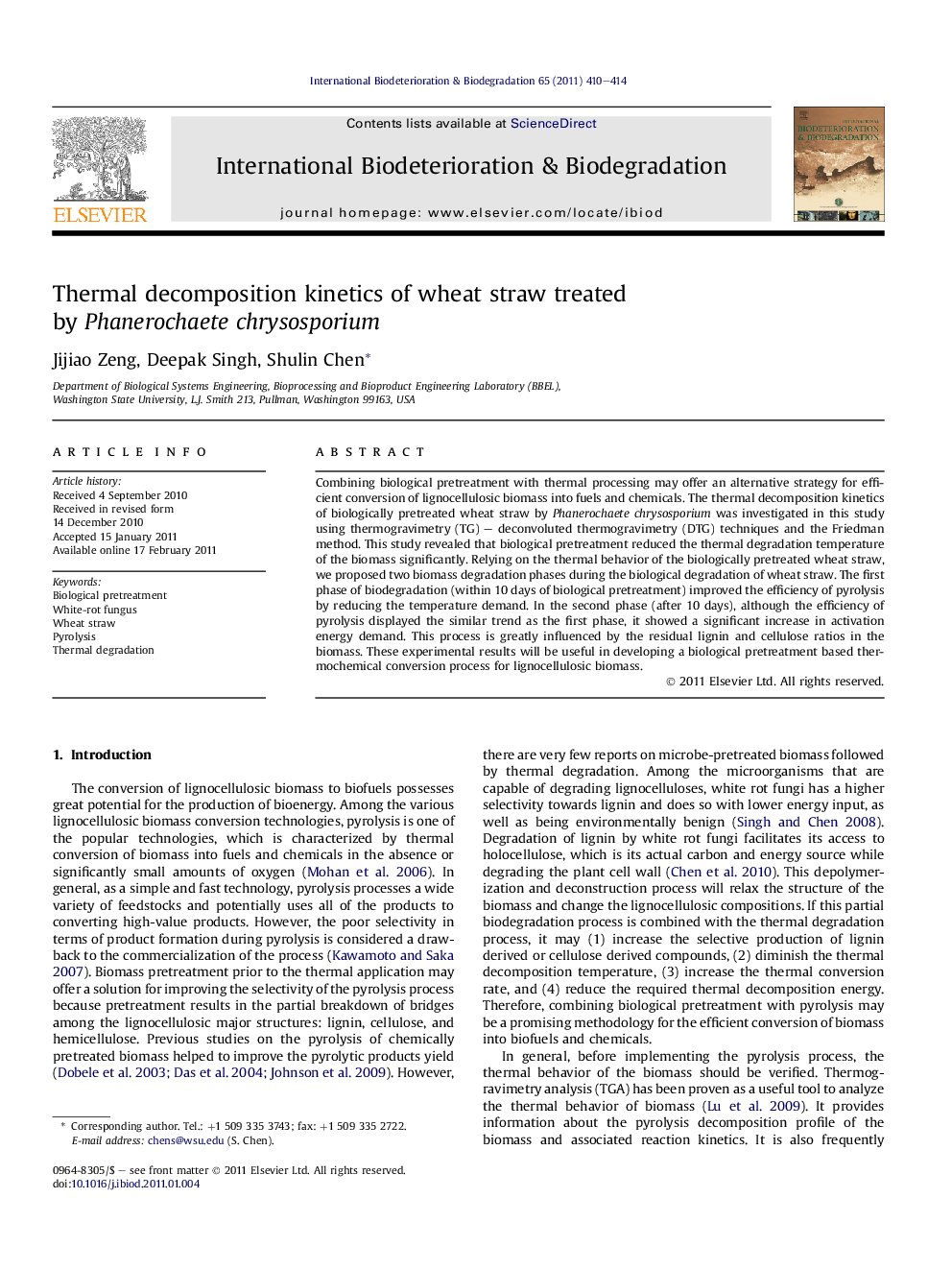| Article ID | Journal | Published Year | Pages | File Type |
|---|---|---|---|---|
| 4365483 | International Biodeterioration & Biodegradation | 2011 | 5 Pages |
Combining biological pretreatment with thermal processing may offer an alternative strategy for efficient conversion of lignocellulosic biomass into fuels and chemicals. The thermal decomposition kinetics of biologically pretreated wheat straw by Phanerochaete chrysosporium was investigated in this study using thermogravimetry (TG) – deconvoluted thermogravimetry (DTG) techniques and the Friedman method. This study revealed that biological pretreatment reduced the thermal degradation temperature of the biomass significantly. Relying on the thermal behavior of the biologically pretreated wheat straw, we proposed two biomass degradation phases during the biological degradation of wheat straw. The first phase of biodegradation (within 10 days of biological pretreatment) improved the efficiency of pyrolysis by reducing the temperature demand. In the second phase (after 10 days), although the efficiency of pyrolysis displayed the similar trend as the first phase, it showed a significant increase in activation energy demand. This process is greatly influenced by the residual lignin and cellulose ratios in the biomass. These experimental results will be useful in developing a biological pretreatment based thermochemical conversion process for lignocellulosic biomass.
